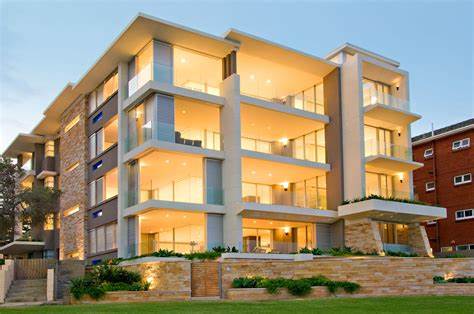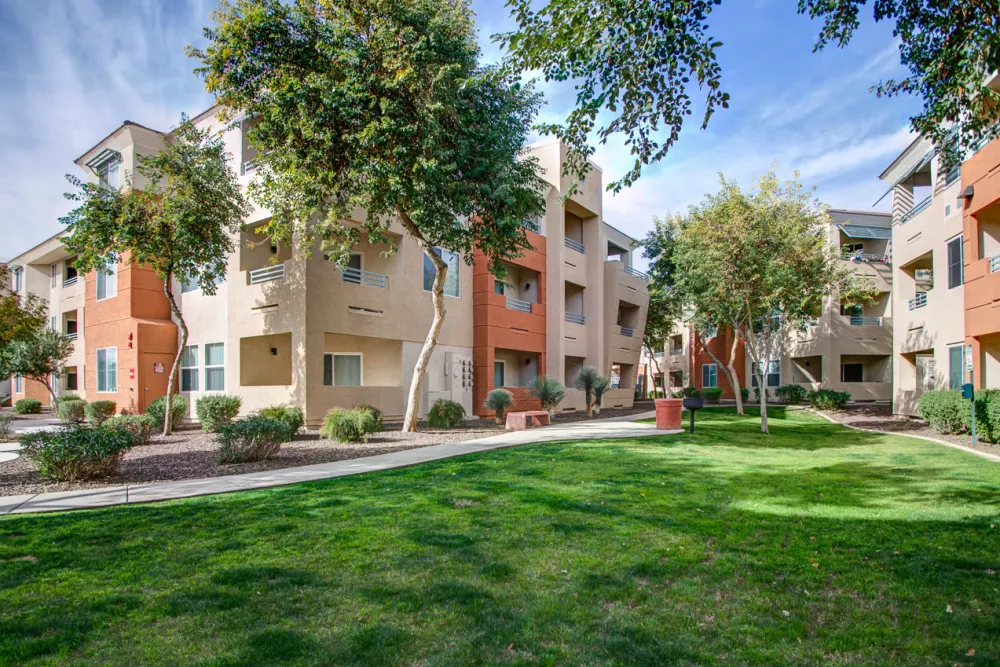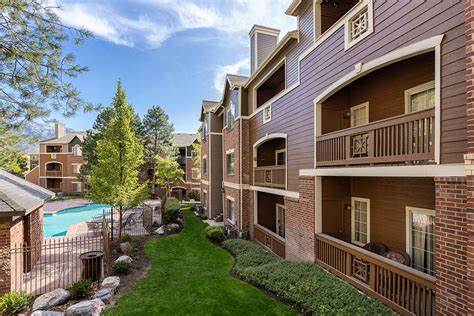Are you on the hunt for the perfect basement apartment? Look no further! In this comprehensive guide, we will equip you with all the knowledge and tips you need to find the ideal basement apartment for rent. Whether you’re a first-time renter or someone who has experienced the challenges of renting before, this guide will pave the way for a successful search.
Discover the benefits of living in a basement apartment, from affordability to increased privacy. We’ll walk you through the essential factors to consider when searching for a basement apartment, such as location, safety, amenities, and budget. Learn about how to negotiate rental agreements, what questions to ask potential landlords, and how to spot potential red flags.
With our expert advice, you’ll feel confident and well-informed as you embark on your search for a basement apartment for rent in Utah. Don’t settle for anything less than the perfect space that meets your needs and preferences. Start reading now and take the first step towards finding your dream basement apartment for rent!
Pros and Cons of Living in a Basement Apartment
Contents
- 1 Pros and Cons of Living in a Basement Apartment
- 2 Pros of Living in a Basement Apartment:
- 3 Cons of Living in a Basement Apartment:
- 4 Factors to Consider When Looking for a Basement Apartment
- 5 Tips for Finding a Safe and Legal Basement Apartment
- 6 Questions to Ask When Contacting a Landlord or Property Manager
- 7 Understanding Rental Agreements and Lease Terms for Basement Apartments
Living in a basement apartment for rent offers both advantages and disadvantages. Understanding these pros and cons will help you determine if this type of living arrangement is right for you.
Pros of Living in a Basement Apartment:
- Affordability: Basement apartments are often more affordable than other types of rentals, making them an attractive option for individuals on a tight budget. Renting a basement apartment can help you save money while still enjoying a comfortable living space.
- Increased Privacy: Basement apartments often offer more privacy compared to other rental options. With a separate entrance and possibly minimal shared walls with the main house, you’ll have a quieter and more secluded living environment. This can be particularly appealing for introverts or individuals who value their personal space.
- Natural Light: Contrary to popular belief, many basement apartments have adequate natural light, especially if they are well-designed and properly maintained. While they may not receive as much direct sunlight as above-ground units, strategic placement of windows and light wells can help bring in ample light, creating a pleasant living space.
Cons of Living in a Basement Apartment:
- Limited Natural Light: While some basement apartments have sufficient natural light, others may lack adequate sunlight due to their below-ground location. This can make the space feel darker and potentially affect your mood. Consider your personal preference for natural light when evaluating basement apartments.
- Potential for Moisture and Dampness: Basements are more prone to moisture and dampness due to their underground location. This can lead to issues like mold growth and musty odors if not properly addressed. When considering a basement apartment, ensure proper ventilation and moisture control measures are in place to maintain a healthy living environment.
- Noise and Lack of Views: Basement apartments may experience more noise from above-ground activities, such as footsteps or plumbing sounds. Additionally, since basement windows are often at ground level or below, the view from the apartment may be limited. If you enjoy natural light and expansive views, a basement apartment might not be the best fit for you.
Factors to Consider When Looking for a Basement Apartment
When searching for a basement apartment for rent, it’s crucial to consider several factors to ensure it meets your needs and preferences. Here are the key aspects to keep in mind:
1. Location: The location of the basement apartment is essential. Consider factors such as proximity to your workplace or educational institutions, access to public transportation, nearby amenities like grocery stores and parks, and the overall safety of the neighborhood. Assess whether the location aligns with your lifestyle and daily routine.
2. Safety: Safety should be a top priority when choosing a basement apartment. Evaluate the security measures in place, such as well-lit entrances, secure locks, and the presence of smoke detectors and fire extinguishers. Research the crime rate in the area and inquire about any previous security incidents in the building or neighborhood.
3. Amenities and Facilities: Determine what amenities and facilities are available in the basement apartment and the building as a whole. Does it have a separate entrance? Is there access to laundry facilities? Are there parking options available? Assess the overall convenience and comfort offered by the property.
4. Size and Layout: Consider the size and layout of the basement apartment to ensure it suits your needs. Evaluate the number of bedrooms, bathrooms, and the overall living space. Take into account your furniture and belongings to ensure they can be accommodated in the available area.
5. Natural Light and Ventilation: Assess the amount of natural light and ventilation the basement apartment receives. Look for apartments with well-placed windows and adequate airflow to create a comfortable living environment. Consider the orientation of the apartment and the availability of outdoor spaces like patios or balconies.
6. Noise Levels: Pay attention to the noise levels in the basement apartment. Factors such as proximity to busy streets, nearby construction sites, or noisy neighbors can significantly impact your quality of life. Visit the apartment at various times of the day to get a sense of the noise levels.
7. Accessibility: Consider the accessibility of the basement apartment. If you have mobility challenges or anticipate having guests with special needs, ensure that the apartment has appropriate accessibility features such as ramps or elevators.
By carefully considering these factors, you can narrow down your options and find a basement apartment that aligns with your preferences and lifestyle.
Tips for Finding a Safe and Legal Basement Apartment
Finding a safe and legal basement apartment for rent is paramount to your well-being and peace of mind. Follow these tips to ensure you land in a secure and legally compliant rental:
- Research Local Laws and Regulations: Familiarize yourself with the local laws and regulations regarding basement apartments in the area you’re searching. Some cities have specific requirements for basement apartments to ensure safety and habitability. Understanding these regulations will help you identify legal and compliant options.
- Work with Reputable Rental Agencies or Platforms: Consider working with reputable rental agencies or platforms that have a track record of listing safe and legal basement apartments. These agencies often conduct thorough background checks on landlords and properties before listing them, reducing the risk of encountering fraudulent or unsafe rentals.
- Inspect the Apartment: When visiting potential basement apartments, conduct a thorough inspection. Look for signs of water damage, mold, or pests. Ensure that all necessary safety features are in place, such as fire alarms, carbon monoxide detectors, and proper ventilation systems. Don’t hesitate to ask the landlord or property manager about any concerns you may have.
- Inquire about Permits and Certifications: Ask the landlord or property manager about any permits or certifications required for the basement apartment. This could include permits for fire safety, electrical work, or building code compliance. A responsible landlord will have the necessary paperwork to ensure the apartment meets all safety standards.
- Check References and Reviews: Request references from previous tenants or reach out to current tenants if possible. Hearing about their experiences can provide valuable insights into the safety and overall quality of the basement apartment. Additionally, check online reviews for the property or landlord to gather more information.
- Trust Your Instincts: If something feels off or too good to be true, trust your instincts and proceed with caution. Be wary of landlords who pressure you to sign a lease quickly or who are reluctant to address your concerns. Your safety and well-being should always be a priority.
By following these tips, you can navigate the rental market with confidence and find a safe and legal basement apartment that meets your needs.
Questions to Ask When Contacting a Landlord or Property Manager
When reaching out to a landlord or property manager about a basement apartment for rent, it’s essential to ask the right questions to gather all the necessary information. Here are some key questions to consider:
- Is the basement apartment legal and compliant with local regulations? Ensure the basement apartment meets all legal requirements and has the necessary permits and certifications.
- What is included in the rent? Inquire about utilities, parking, and any additional fees or responsibilities you may have as a tenant.
- What is the lease term? Determine the duration of the lease and if there are any options for renewal.
- Are there any restrictions on modifications or decorating? Ask about any limitations on painting, hanging artwork, or making changes to the apartment’s layout.
- What is the process for reporting maintenance issues? Understand how maintenance requests are handled and the expected response time for repairs.
- What are the terms for security deposit and rent payment? Inquire about the amount of the security deposit, how it will be held, and the process for refunding it. Clarify the due dates and acceptable methods of rent payment.
- What is the policy on pets and guests? If you have pets or anticipate having guests, ensure you understand the landlord’s policies on these matters.
- Are there any upcoming construction or renovation projects in the building? Ask about any potential disruptions that may occur due to ongoing or upcoming construction work.
Remember to ask any additional questions specific to your needs and concerns. Clear communication with the landlord or property manager will help you make an informed decision about renting the basement apartment.
Understanding Rental Agreements and Lease Terms for Basement Apartments
Before signing a rental agreement for a basement apartment for rent, it’s crucial to understand the terms and conditions outlined in the document. Here are some key aspects to consider:
- Lease Duration: Determine the duration of the lease and if there are any options for renewal. Ensure the lease aligns with your desired length of stay.
- Rent and Additional Fees: Clarify the monthly rent amount and inquire about any additional fees, such as utilities, parking, or maintenance charges. Understand how and when these payments are expected.
- Security Deposit: Find out the amount of the security deposit and the conditions for its refund. Ensure you understand any deductions that may be made and the timeline for the return of the deposit after the lease ends.
- Maintenance Responsibilities: Understand your responsibilities as a tenant regarding maintenance and repairs. Inquire about the process for reporting issues and the expected response time for repairs.
- Termination and Renewal: Familiarize yourself with the terms for terminating the lease early, if necessary, as well as the procedures for lease renewal. Understand any penalties or fees associated with early termination.
- Tenant Rights and Landlord Obligations: Educate yourself about tenant rights and the landlord’s obligations. This includes issues such as privacy, access to the premises, and proper notice for entry.
- Insurance Requirements: Inquire about any insurance requirements for the basement apartment. Understand if you need to obtain renter’s insurance and what coverage it should include.
- Dispute Resolution: Understand the process for resolving disputes between the tenant and landlord. Determine if there are any specific procedures or resources available for dispute resolution.
Reading and understanding the rental agreement thoroughly will help you avoid any surprises or misunderstandings during your tenancy. If you have any questions or concerns, don’t hesitate to seek legal advice or clarification from the landlord or property manager.
Finding the perfect basement apartment for rent requires careful consideration of various factors, including location, safety, amenities, and budget. By understanding the pros and cons, asking the right questions, and thoroughly reviewing rental agreements, you can make an informed decision and secure the ideal basement apartment for rent. Remember to trust your instincts and prioritize your safety throughout the process. Happy apartment hunting!





